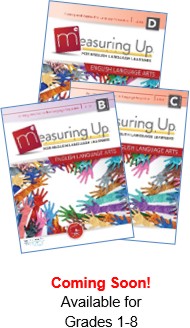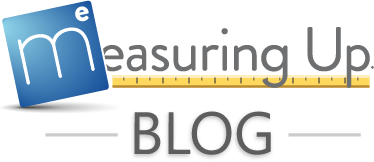Ways to Empower English Language Learners

Ways to Empower
English Language Learners
In American K-12 public schools, English language learners (ELLs) make up over 10% of students. 10% may not sound like much, but that’s over 5 million students!
ELLs are unique: some have high oral proficiency skills but struggle to read and write while some are the exact opposite. Each student is different and will require individualized learning support. It’s not just up to the ESL specialist at your school to support these students, each teacher needs to know how they can empower the English language learners in their classroom.

Why English Language Learners Need Your Support
Unless ELL students are supported properly, they risk falling behind their English-fluent peers. In Child Trends’ 2014 study, the Academic Achievement of English Language Learners, Dr. David Murphey points to an achievement gap between ELL students and English fluent students in Texas. Only 36% of fourth-grade ELL students scored at or above a basic level in reading and only 46% of eighth-grade ELL students scored at or above a basic level in math. There is a clear achievement gap between ELL students and their English fluent peers.
To make progress towards closing the achievement gap, educators and administrators need to consider the needs of ELL students and implement strategies to support their academic success. The following guidelines and strategies have been endorsed by scholars and researchers in the field of Teaching English to Speakers of Other Languages (TESOL).
General Guidelines for Including ELL students
- Foster a welcoming class environment where students are allowed to make mistakes.
- Avoid unnecessary idioms and slang.
- Allow plenty of time for students to develop their ideas.
- Use visual media to build connections to concepts.
- Differentiate instruction.
- Praise ELL students’ hard work in learning an additional language.

Use Appropriate Test-Taking Accommodations
There are various types of assessments and adjustments you can use depending on your students. It’s important to remember that the type of accommodations you offer to ELL students may vary from each student depending on their proficiency level and grasp of academic vocabulary.
- Provide extra test-taking time. ELL students need more time to process information in a second language.
- Read the test aloud. Some English language learners develop speaking and listening skills before reading and writing skills.
- Provide word banks. Word banks help ELL students make connections between concepts and relevant vocabulary words.
- Use informal assessments. Fill-in-the-blank questions and written responses aren’t the only way to assess students’ knowledge. Use informal assessment techniques such as observation, performance assessment, or sorting activities.

Use Total Physical Response (TPR)
TPR works best with young and beginner-level ELL students, but it can be effective across all ages and proficiency levels. TPR combines language with movement; teachers physically act out terms and “talk with their hands.” This is similar to how we all acquire our first language and is encouraged by psychologist James Asher. This technique works well for teaching new vocabulary words, especially verbs. It is also a great technique to use while storytelling and reading.
ELL students don’t rely solely on verbal cues while interpreting the English language, they also use non-verbal body language to understand what’s being taught. Using TPR in your class is a great way to support the success of ELL students.

Collaborate with ESL Specialists
Certified ESL specialists understand how language acquisition works and can provide valuable insights when it comes to student assessment and support. Get to know your school’s ESL specialist and meet with them on a semi-regular basis to discuss your ELL students. ESL specialists can help you decide what kind of accommodations you should make for your students who are learning English and what kind of classroom activities will help them be successful.

Encourage Collaborative Communicative Work
The majority of TESOL experts today take a communicative approach to language teaching. Meaning they focus on how students use language to communicate with each other. Small group work allows students to practice their speaking and listening skills while learning new topics.
Be sure to call on your ELL students just as often as you call on your English fluent students even if your ELL students are shy or hesitant to speak up. It’s natural for ELL students to feel some anxiety about speaking in front of the class but it’s important for them to do so. Always be patient with your ELL students and give them enough time to communicate, don’t try to finish their sentence for them or guess what they are trying to say unless they ask for assistance.

Don’t Overcorrect Grammar and Pronunciation
Unless you are specifically teaching a lesson on grammar, don’t correct your ELL students’ mistakes. Remember that you’re interested in their knowledge of the class content, whether that be history, science, math, or literature. When ELL students are corrected on their language use, they may feel embarrassed and discouraged from speaking up in class. It’s more important for students to participate and use language to the best of their ability than it is for them to speak perfectly grammatical English.
The Bottom Line
Learning gaps affect all students. Teachers should use professional development tools that help them empower students and close learning gaps. The Measuring Up for English Language Learners program provides instructional lessons that target the six performance level descriptors (PLDs). Lessons include unparalleled teacher support using paired literacy and informational passages.
Now that you’ve read about the various ways you can support ELL students in your class, you’re ready to put these strategies to use!


Peoples Education, Inc. | Mastery Education, Inc.
25 Philips Parkway, Suite 105 | Montvale, NJ 07645 | 800-822-1080 | MasteryEducation.com

